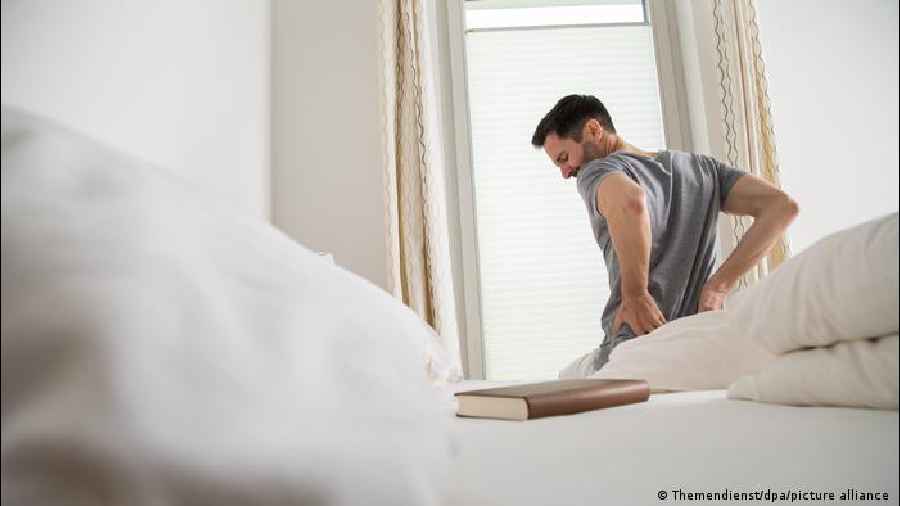A sedentary lifestyle can lead to spine ailments as the increased body weight puts an excess load on the spine, a neurosurgeon said at a discussion on spine health in a city hospital on Sunday.
Like any other part of the human body, the spine suffers wear and tear over the years. Increased body weight, a result of a sedentary lifestyle, means the worn-out spine has to carry additional load. Amitabha Chanda, head of neurosurgery at the RN Tagore International Institute of Cardiac Sciences (RTIICS), said that sitting in a chair without a backrest should be avoided.
The computer screen should be at a level that allows working in a relaxed manner. The opposite of this can also lead to spine problems.
“The spine is carrying the weight of our body. There is natural wear and tear with age. If the body weight increases, the load on the joints in the spine increases, too. That can lead to spine ailments,” he said.
A sedentary lifestyle also doesn’t allow the development of muscles. Developed muscles share some of the body weight.
“The core muscles lose strength because of sedentary lifestyle. As a result, the bones of the spine have to bear excess load,” he said.
Regular exercise reduces body weight and strengthens core muscles, said Chanda, who delivered a talk on spine health at RTIICS.
The talk was organised by Rotary District 3291.
Chanda said symptoms start manifesting with back and neck pain.
If the pain is local, it can be treated with medicines and physiotherapy. Other forms of pain like neck pain that shoots off to arms or waist pain that shoots off to the legs can be more worrying. He also advised against smoking and too much drinking, as they reduce nutrition supply to tissues. Alcohol consumption also damages muscle strength, he said.
One must also ensure that the workstation allows sitting in a relaxed manner. The computer or the laptop screen should not be too high or too low compared with the eye level. “The neck and the eyes should be very relaxed,” said Chanda.
The surgeon said people should not neglect back pain or neck pain as these can lead to serious complications, including weakness in a part of the body and even paralysis. RTIICS will launch a spine clinic where a patient will be examined by three specialists – a neurosurgeon, a specialist in physical medicine and rehabilitation and a pain management specialist.
The idea behind having three specialists is to eliminate bias and detect the right cause for any ailment, Chanda said.
